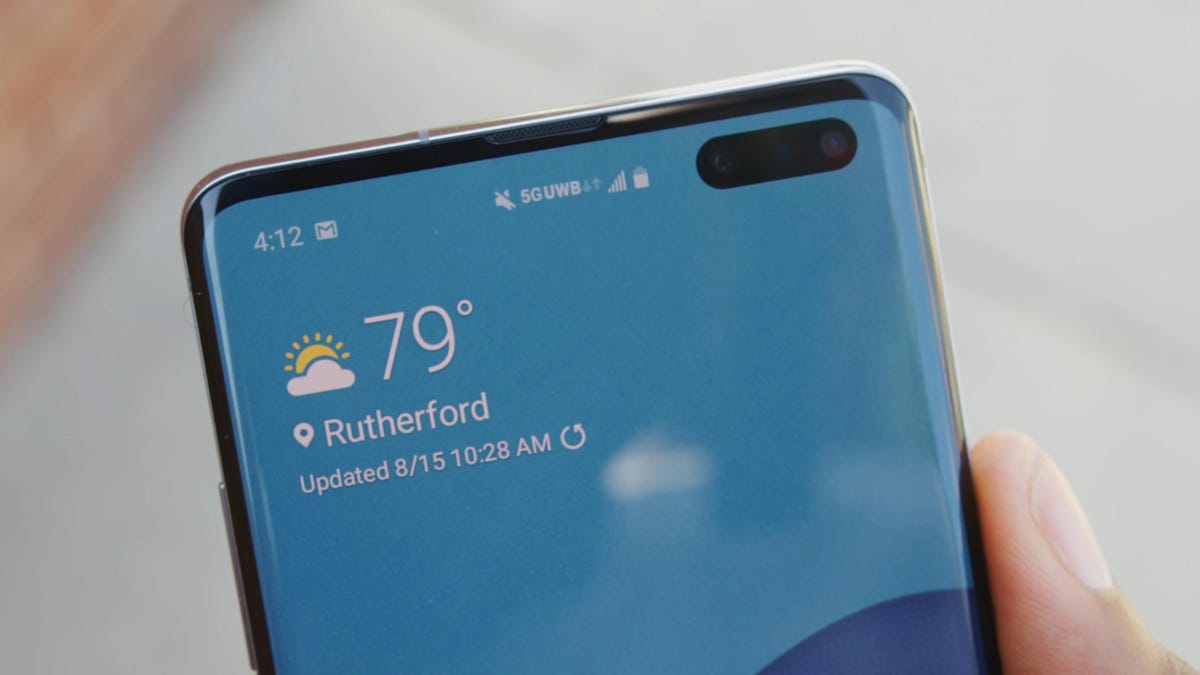
The Difference Between 5G UC, 5G UW, and 5G+
Reading Time: 2 minutesYour smartphone says 5G UC, 5G UW, or 5G+. But why?
These days, every flagship smartphone, be it Android or iPhone, can connect to the 5G networks each major US carrier has built over the last few years. All this new 5G technology was supposed to usher in a new era of super high-speed mobile connections where we could download giant files in mere seconds and stream 4K video or console-quality gameplay via the cloud. But like all grand claims of next-gen technology, the realities don’t quite match such lofty claims.
To be fair, 5G is certainly faster than the previous 4G LTE networks, and in some cases, 5G networks provide the faster speeds originally promised. However, not all 5G networks are the same, and while your phone may say it’s connected to 5G, it’s unlikely you’re using a ‘true’ 5G connection.
High, mid, and low-band 5G
As it turns out, there are multiple versions of 5G, each one offering different connection speeds, ranges, and coverage zones.
- High-band 5G or millimeter wave (mmWave) 5G is the true 5G capable of 10x faster download speeds compared to 4G LTE. However, high-band 5G requires entirely new cell tower technology. Connections are also limited by distance and prone to interference.
- Low-band 5G is only about 20% faster than 4G LTE at best, and in some cases there’s no difference at all. Unlike high-band 5G, low-band 5G can also piggyback off existing 4G LTE networks, enabling faster rollout and wider availability.
- Mid-band 5G is a recent third 5G variation that offers a decent compromise between the two. It’s faster than low-band (roughly six times faster than LTE) and offers a longer connection range and better availability than high-band.
If you want to get technical, there are even variations within each of the three categories based on specific wavelengths used, but broadly speaking these specifications are consistent between the three major US carriers: T-Mobile, AT&T, and Verizon. What isn’t consistent is the naming conventions each company uses, and how they delineate between high, mid, and low-band 5G.
Carrier-specific 5G: 5G+, 5GE, 5G UC, etc.
As if labeling three separate network technologies as ‘5G’ wasn’t confusing enough, AT&T, T-Mobile, and Verizon all use proprietary labels to refer to their various 5G connections, even though they all fall into the high, mid, or low-band frequencies outlined above. Here’s how each of the three major US network providers label their 5G connections.
AT&T
- 5G+: Mid-band and high-band frequencies.
- 5G E: Low-band 5G.
T-Mobile
- 5G UC: Stands for ‘ultra capacity,’ refers to high and mid-band 5G.
- 5G: Low-band 5G, sometimes labeled ‘5G extended range’ in plans and marketing.
Verizon
- 5G UW: Stands for ‘Ultra Wideband,’ includes both mid-band and high-band frequencies.
- 5G Nationwide: Low-band 5G.
The availability of each company’s 5G networks depends on your location, phone model, and phone plan, but you can tell which 5G network you’re connected to by the network icons displayed at the top of your phone’s screen.
You probably noticed all three companies lump high-band and mid-band connections together. While this can make it difficult to know which you’re connected to without checking your download speeds, given high-band 5G’s limited availability, it’s more likely you’re on a mid-band connection if your phone says it’s using 5G+, 5G UC, or 5G UW.
Reference: https://lifehacker.com/the-difference-between-5g-uc-5g-uw-and-5g-1850827783
Ref: lifehacker
MediaDownloader.net -> Free Online Video Downloader, Download Any Video From YouTube, VK, Vimeo, Twitter, Twitch, Tumblr, Tiktok, Telegram, TED, Streamable, Soundcloud, Snapchat, Share, Rumble, Reddit, PuhuTV, Pinterest, Periscope, Ok.ru, MxTakatak, Mixcloud, Mashable, LinkedIn, Likee, Kwai, Izlesene, Instagram, Imgur, IMDB, Ifunny, Gaana, Flickr, Febspot, Facebook, ESPN, Douyin, Dailymotion, Buzzfeed, BluTV, Blogger, Bitchute, Bilibili, Bandcamp, Akıllı, 9GAG